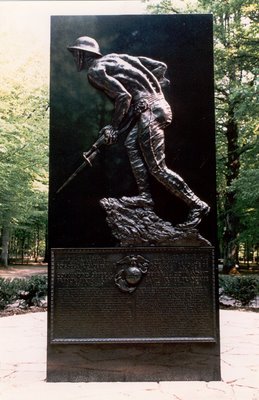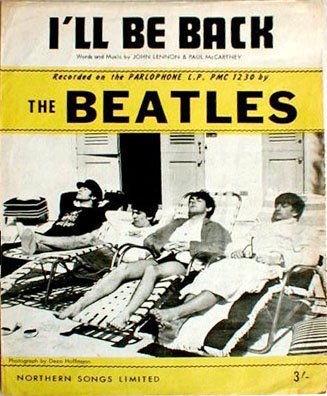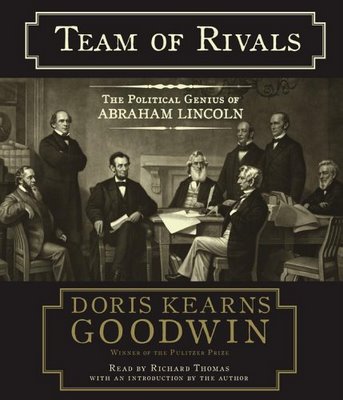
The New York Times is the newspaper that brought both Jayson Blair and Judy Miller into the public eye in recent times. Therefore it comes as no suprise that the Times doesn't mind playing the "victim" card whenever it has to defend its actions. But I've never actually found the paper to be
stupid. Liberal? Yes. Pretentious? Yes. Stupid. No. That's is, at least until today.
In an editorial this morning entitled
"A Sudden Taste for the Law," the Times editorial staff weakly attempts to deflect the heat eminating from the Justice Department regarding the paper's recent revelation of classified information.
It's hard to say which was more bizarre about Attorney General Alberto Gonzales's threat to prosecute The Times for revealing President Bush's domestic spying program [sic]: his claim that a century-old espionage law could be used to muzzle the press or his assertion that the administration cares about enforcing laws the way Congress intended.
In order to answer the Times' question as to "which was more bizarre," we'll need to examine each prong of this question indivdually. Prong One: "his claim that a century-old espionage law could be used to muzzle the press." (Translation: "We're not saying we didn't do anything wrong, we're saying that you can't touch us even if we did -nyah, nyah, nyah.")
But a quick look at
The Times own story reveals that Gozalales claimed nothing of the sort.
Asked whether he was open to the possibility that The New York Times should be prosecuted for its disclosures in December concerning a National Security Agency surveillance program, Mr. Gonzales said his department was trying to determine the appropriate course of action in that particular case." "I'm not going to talk about it specifically," he said. "We have an obligation to enforce the law and to prosecute those who engage in criminal activity."
Does that sound like Gonzales was issuing a "threat to prosecute the Times," as the paper claims? Reads to me like a polite refusal to discuss the matter further vis a vis the Times or any other paper. If the Times broke the law, then the law will be enforced against the Times. Pretty straight forward, and hardly a "threat." But what law might the Time have broken? Here again is the editorial's version:
Mr. Gonzales seemed to be talking about a law that dates to World War I and bans, in some circumstances, the unauthorized possession and publication of information related to national defense. It has long been understood that this overly broad and little used law applies to government officials who swear to protect such secrets, and not to journalists.
Oh, I get it. If the law is older than I am and not enforced very often, then it isn't really a law. And even if it was a law, it doesn't apply to me, because that's the way its been "long understood." Although the Times apparently cannot bring itself to name the law that they might have broken either in its story or its editorial, that staunchly conservative broadsheet,
The Washington Post, confirms the law has the word "espionage" in the title: "
He was referring to the 1917 Espionage Act, which made it a crime for an unauthorized person to receive national defense information and transmit it to others." Uh oh. That doesn't sound good, Grey Lady. You received classified information, and you transmitted it to others. What do you have to say for yourself?
Those laws are the basis of a pending case against two lobbyists, but they have never been used to prosecute journalists.
Yeah, and Cardinal O'Connor has never been prosecuted for bigamy, either. But that doesn't mean that that law, as little used as it might be, wouldn't apply to him. And by the way "lobbyists" are not "government officials" so it would appear the application of the law is a bit broader than you would have us believe. What else you got?
Some legal scholars say that even if the plain language of the laws could be read to reach journalists, the laws were never intended to apply to the press. In any event, these scholars say, prosecuting reporters under the laws might violate the First Amendment.
Yeah, but even the First amendment permits "time, place and manner" restrictions to be placed on non-political speech. You're not claiming that revealing state secrets is "political speech," are you? And what did the Attorney General say about this? WAPO?
Yesterday, Gonzales said, "I understand very much the role that the press plays in our society, the protection under the First Amendment we want to promote and respect . . . but it can't be the case that that right trumps over the right that Americans would like to see, the ability of the federal government to go after criminal activity."
Sounds reasonable enough to me. Of course, a jury might think otherwise. But that's how we do things around here. In any event, the Attorney General's remarks were certainly not "bizarre" by any known definition of that word.
Normally, the inquiry should stop here, because the Attorney General's alleged "threats" to "prosecute the Times" and thus "muzzle the press" appear to be false. Thus "bizarre" never comes into the picture, much less "more bizarre." But in the interest of justice, let's move on to Prong Two of the Times' editorial: "his assertion that the administration cares about enforcing laws the way Congress intended."
Well? Even if that statement was true (and that is a f**king BIG
"IF") so what? Here's how the Times segues from Prong One to Prong Two:
But in any case, Mr. Gonzales and Mr. Bush have not shown the slightest interest in upholding constitutional principles or following legislative guidelines that they do not find ideologically or politically expedient.
Ohhhhhhhhhh, I get it now! Because (in the Times' view) the administration doesn't care about enforcing the law as Congress intended, then the law should not be enforced against the Times. But what does the administration's attitude about enforcing laws the way Congress intended"have to do with whether the Times could be prosecuted for publishing state secrets under a validly enacted statute? Answer: zero.
This is a classic application of
ad hominem tu quoque, or the "you too " fallacy. Pioneered by famed sophist Pee Wee Herman ("I know you are but what am I?"), the fallacy exisits where one defends himself by arguing that the other party does it too. Once criticized by the kettle, the pot calls the kettle black, and makes the kettle defend itself, when it is really the pot that is the object of the scrutiny.
The Times' defense is so plainly pathetic that I'm now thinking that the paper suspects that it might just
have really done it this time, and that the ongoing legal expense is going to finally tick off the investors, and which raises a whole host of interesting questiions, none of which you'll ever encounter here.
In any event, if you are the Attorney General, this particular business has all the earmarks of a criminal case worth pursuing. If the government has no case, well then, by God, go home. If the government does have a plausible case against the Times for a violation of the Espionage Act, then let's get it on.
But if you are the Times....well... we all know what happened to Pee Wee, don't we?
















